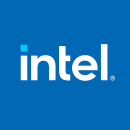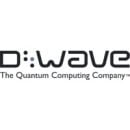Quantum computers run on multi-state components called qubits, which can reach the “superposition” of essentially being both one and zero while also “entangling” in combined states. In lay terms, that means quantum computers can do lots of things classical computers can’t, including crunching massive amounts of complex information faster and simulating molecules.
Top Quantum Computing Companies
- IBM
- IonQ
- Microsoft
- Intel
- D-Wave Systems
- NVIDIA
- Rigetti Computing
- Quantinuum
- Xanadu
At this point, quantum computing applications are garnering increased attention and anticipation, but wide-scale use itself remains a ways off.
An increasing number of companies — like the ones below — are trying to close the gap between present and future. When quantum computing is perfected, it will transform a host of industries.
Quantum Computing Companies to Know
IBM is a leader in quantum research, having developed various quantum-specific technologies and software for research, including quantum SDK Qiskit. IBM also hosts quantum data centers where clients can access quantum computing systems in person. In 2023, IBM unveiled the IBM Quantum System Two, the world’s first modular utility-scale quantum computer system, which aims to act as a building block for quantum supercomputing. The company plans to follow this up in 2025 with the first quantum-based supercomputer.
When IonQ bested the qubit counts of IBM (50) and Google (72) in 2018 with its 160-qubit processor, jaws dropped. Whereas most QC companies employ superconductors, IonQ is pioneering the trapped-ion method through which ions are isolated in a vacuum chamber and subatomic particles are cooled via lasers, eliminating the need for the gigantic copper-looking contraptions that are common in quantum computers.
While most quantum-computing research hitches its qubits to the superconductor/solid-state wagon or, to a lesser degree, trapped ions, Microsoft rolls along a third route: topological qubits. These qubits would sidestep so many pesky stability requisites by splitting an electron — essentially, double anti-interference protection — and exhibiting two ground states (a.k.a. ground state degeneracy). While Microsoft claims it’s achieved topological qubits, this concept remains theoretical in the face of doubts among the scientific community.
Intel has been seriously exploring quantum computing since at least 2015, when it partnered with research group QuTech. Its focus lies on creating quantum computer chips and software, as seen in its Tunnel Falls silicon spin qubit chip and its Intel Quantum SDK. Continuing this research, Intel developed a cryogenic probing process to compile more data on the performance of spin qubit devices and better inform its data analyses.
In 2019, Google announced it had achieved quantum supremacy, the power of quantum computers to perform tasks that classical computers can’t. The company has taken strides to advance quantum technology through efforts such as Google Quantum AI, a lab that develops quantum hardware and software, and Cirq, an open-source quantum programming framework. Julian Kelly, director of hardware at Google Quantum AI, told CNBC the technology is “about five years out from a real breakout” where it can offer practical applications.
D-Wave Systems delivers quantum computing solutions to industries such as manufacturing, finance and life sciences. This includes Leap, a cloud platform providing real-time quantum computer access, and Advantage, a quantum system built for business applications. The company has claimed its quantum machine has attained quantum supremacy, although these claims have been met with debate.
NVIDIA is helping boost quantum computing innovation by creating quantum hardware and software solutions. The NVIDIA Quantum Cloud is an ecosystem of quantum computing tools, including NVIDIA CUDA-Q, a platform for developing hybrid classical-quantum computers and quantum processors (QPUs), emulations, GPUs and CPUs into one system. NVIDIA is doubling down on its quantum initiatives, with plans to construct an accelerated quantum research center in Boston.
When XPRIZE founder Peter Diamandis listed what he believes to be the three “major players” in the push toward quantum supremacy in America, he named Google, IBM and one startup: Rigetti Computing. Rigetti works to build quantum computing parts, from chips and control systems to superconducting qubit-based quantum processors. Its 9-qubit QPU, titled Novera, features a square lattice of qubits for two-qubit operations, and is available for order. Rigetti’s technology has partnered with names like NASA, MIT and Oxford Instruments.
Quantinuum was formed by the merger between Honeywell Quantum Solutions and Cambridge Quantum. The company offers solutions for cybersecurity, natural language processing and machine learning. It also offers research partnerships that allow customers to access quantum computers. Some organizations Quantinuum has partnered with include Samsung, Nipton Steel and BMW.
Xanadu is a startup notable for exploring photonic quantum computing, which uses the quantum properties of light particles to run. The company released free, open-source software that basically lets anyone run commands on publicly accessible, cloud-based quantum computers, like the IBM Q Experience or the University of Bristol’s Quantum in the Cloud — part of a wider push to familiarize enthusiasts with QC operational basics.
A developer of enterprise software for quantum computers, QC Ware counts BMW Group and Goldman Sachs among its customers. It has also teamed with a number of other outfits, including D-Wave, IBM and, perhaps most notably, Google, whose open-source quantum interface Cirq was integrated into QC Ware’s cloud service.
Diraq excels at building silicon-based quantum computers, with the goal of making the technology more scalable. To accomplish this, the company plans to produce a single chip that integrates billions of qubits. This is a much more efficient approach than relying on a network of chips to handle the workload. In 2024, Diraq achieved the level of accuracy required to scale high-performance quantum computers.
ISARA is working to develop quantum-safe cryptography systems that essentially allow communication between classical and quantum algorithms. RSA security encryption relies on prime numbers to secure your information. More specifically, it relies on the fact that prime factorization of large numbers is prohibitively time-consuming for would-be hackers. But if a quantum computer powerful enough to run Shor’s factorization algorithm ever came along, all that security essentially vanishes.
Founded by three veterans of Yale’s applied physics department, Quantum Circuits unveiled its testing facility in 2019. The cofounders are considered trailblazers in quantum computing with superconducting circuits, and the company is illustrative of the science-meeting-tech, academia-meeting-big-business cross-pollination that marks the quest for quantum supremacy.
Atlantic Quantum is designing a single processor that combines its qubit and cryogenic technologies to create the first quantum integrated circuit. If it’s successful, the company will improve the speed, accuracy and scalability of quantum computing. The U.S. government has taken notice of Atlantic Quantum’s progress, granting the company $1.8 million to equip the Air Force with superconducting quantum computers.
Toshiba’s Quantum Key Distribution program is working to solve security problems that quantum computers could potentially bring about. Toshiba’s quantum cryptography solutions have been in the works since 2003, when the company invested time at the Cambridge Research Laboratory of Toshiba Research Europe Limited. According to its website, Toshiba’s quantum key distribution was the first to reach over 100 kilometers of fiber, and it was the first company exceeding 1Mbit per second with a continuous key rate.
Alice & Bob takes a unique approach to quantum computing by using what are known as cat qubits. Named after Schrödinger’s Cat, cat qubits can exist in two states at once, or superposition. This allows them to greatly reduce bit flip error rates in quantum machines at the price of increasing phase flip error rates. In other words, Alice & Bob only have to worry about one type of quantum error. With its cat qubit-based method, the company believes it can develop useful quantum computers by 2030.
William Hurley, the serial entrepreneur who heads up Strangeworks, is a serious quantum enthusiast. The company hosts a suite of over 60 quantum resources, such as quantum frameworks and management tools, to create quantum solutions within the aerospace, energy, pharmaceutical and finance industries.
Atom Computing develops quantum computing systems using qubits made from neutral atoms, described by Science as a “dark horse candidate” in the quantum computing field. The company bills itself as the first to exceed 1,000 qubits in a quantum system by controlling qubits wirelessly with lasers. Atom hopes its novel approach will lead to scalable beyond-supercomputers that advance pharmaceutical research, computational chemistry and more.
Hewlett Packard Enterprise (HPE) offers products in areas like AI, private clouds and supercomputing, and it has also dabbled in quantum computing. In partnership with NVIDIA, HPE is developing quantum systems that integrate networks of quantum processors. Exploring a technique known as adaptive circuit knitting, HPE aims to determine the most efficient way to distribute workloads across networks during a quantum computation.
Atos specializes in quantum computing emulations, providing its Quantum Learning Machine as an on-premises hardware environment to simulate and develop quantum software. The Quantum Learning Machine Enhanced version presents up to 12 times acceleration power to simulate algorithms suited for NISQ (Noisy Intermediate Scale Quantum) devices. Atos also offers myQLM, a freeware Python package that allows the testing and development of quantum algorithms on any device, as well as Q-score, a quantum metrics reference applicable to all quantum processors.
AWS, part of Amazon, offers quantum services and resources to help organizations explore quantum computing applications and research. Amazon Braket is one such resource. It’s a fully-managed quantum service that allows users to build, test and run quantum algorithms on different choices of quantum computers. AWS also hosts the Amazon Quantum Solutions Lab, AWS Center for Quantum Computing and AWS Center for Quantum Networking — all of which help accelerate quantum research and expert collaboration.
A Rigetti partner, ProteinQure uses quantum computing and machine learning to computer-simulate designs for protein-based drugs. The company specializes in small proteins that can be applied across all major disease indications. ProteinQure has partnerships with top pharma companies to aid in drug discovery practices.
While you can’t exactly hit up TaskRabbit when your quantum computer needs help, service and product support are must-haves for developers. Infleqtion, previously ColdQuanta, manufactures various quantum components like vacuum systems and processors to keep atoms brutally cold, which aids the all-important work of cutting down qubit motion and noise.
1QBit focuses on combining quantum technology to accelerate artificial intelligence capabilities, and vice versa, and solve optimization problems. In 2017, 1QBit also made waves when it partnered with two major players: tech consultants Accenture and biotech multinational Biogen. Quantum computing was used to create a molecular modeling application, which was able to be applied by Biogen and could lead to breakthroughs in drug discovery and development.
Frequently Asked Questions
What is a quantum computing company?
A quantum computing company is any company that develops solutions related to quantum computers, including quantum hardware, software or services.
Who is making quantum computing chips?
IBM, Google, Intel and Rigetti Computing are a few companies making quantum computing chips, or integrated circuits.
What company is leading in quantum computing?
IBM, Google, Amazon (AWS) and Microsoft are some of the most prominent leaders in quantum computing research and development.


























